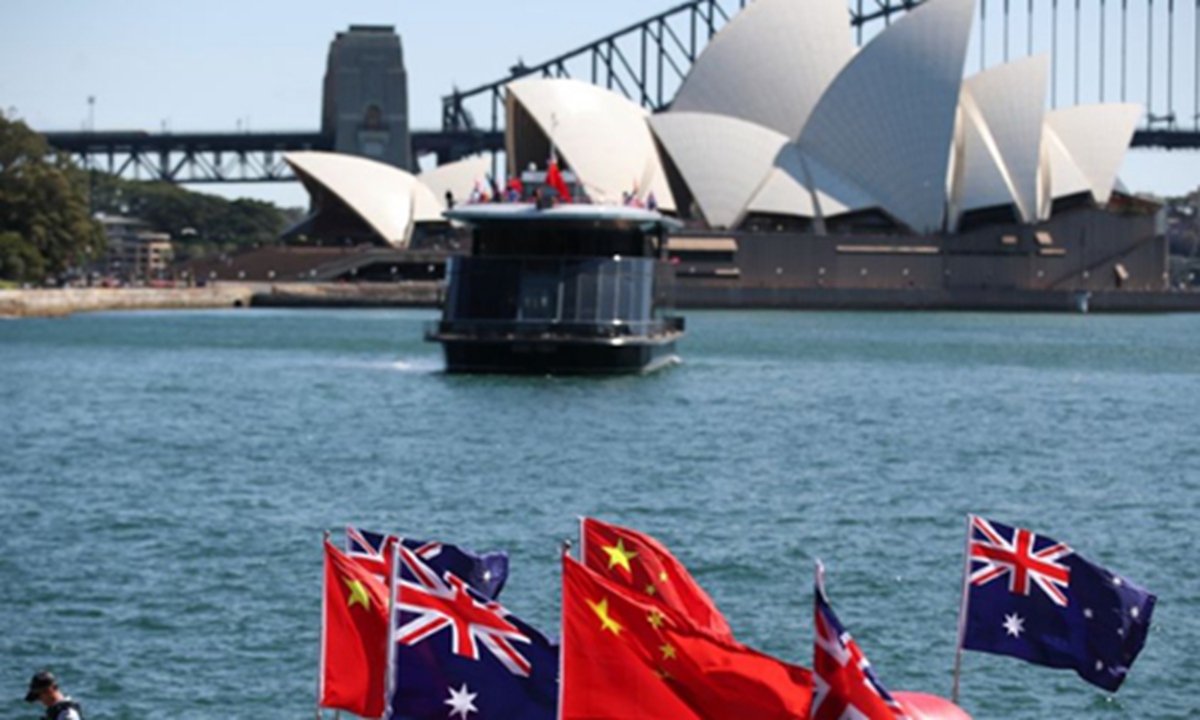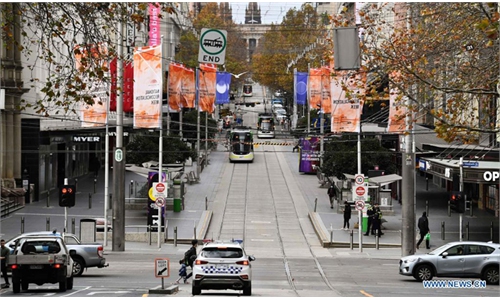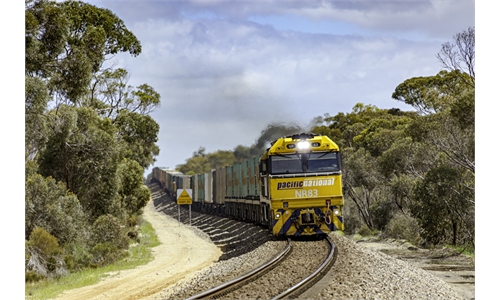COMMENTS / EXPERT ASSESSMENT
Australia needs to halt instigating antagonistic feelings among its citizens

Photo: Xinhua
Turning a blind eye to actual figures and basic economic common sense, over 80 percent of Australian interviewees in a recent survey believe that Chinese investors, who have been barely active in the Australian real estate market during the COVID-19 pandemic, are the ones driving up housing prices in Australia.
Based on a sample of 2,000 responses between March and April 2021, the Australia-China Relations Institute under the University of Technology Sydney delivered a lengthy survey on Australian attitudes toward China in various topics, including the rising prices in real estate market, which they could find "fault" in China.
However, foreign investors made up only 3.7 percent of new home sales and 2.2 percent of established homes in the first quarter, the Guardian reported, citing data from the National Australia Bank.
Obviously, the proportion of Chinese investors would be even lower than the figures. Boosted by such a small number of buyers from China, as Australians believe, housing prices surged over the past year. Across Australia's five capital cities, the average housing prices have increased by 10 percent during the first five months, according to industry data.
Nearly all major economies have been hit hard by the deadly coronavirus and endured different degrees of recession. Striving to reverse the economic contraction and recover from the fallout, governments, guided by Western economic theories, tend to adopt expansionary fiscal policies that lower interest rates on loans and mortgages to boost consumption. Lower interest rates, to some extent, would also lead to increasing housing prices.
While under the poisonous influence of Western anti-China politicians trying to instigate antagonistic feelings among their citizens against China to shift the blame to Chinese shoulders, the "blame everything on China" trend has become a catch-all solution for any problem, including the rising housing prices which Chinese buyers barely impacted.
Ironically as it is, the scenario is not terribly surprising. Economic recessions usually drive up protectionism and populism, especially among conservative elder and relatively low-income groups. As the survey shows, older Australians aged over 55 are more likely to agree that Chinese investors are driving up housing prices, and are also less likely to agree that foreign investment from China has created job opportunities in Australia.
However, Aussie industries, which have benefited tangibly from economic exchange with China over the past decades, are clear about the risks of an intensifying hostility among people from both sides.
Before the Morrison administration started to tie itself to the chariot of the US anti-China campaign and played a role of aggressive muscleman of the US, Australian economy had been long enjoying a huge boost from China's rapid growth. As an export-oriented economy, it ships over 30 percent of its exports to the Chinese market.
Though the "blame China" scheme has generated negative influence among common citizens, the awareness of maintaining the significant relation with their largest trading partner has not been entirely erased. Representatives from various sectors have been calling for efforts from the Australian government to restore trust in its relations with China.
As the survey noted, Australians "are not yet willing to give up on the relationship entirely, recognizing some of its benefits." As for Canberra, instead of pulling a political stunt, it needs to make real efforts to rebuild mutual trust, and could start with addressing prejudice and misunderstanding among its citizens.
The article was based on an interview with Song Wei, research fellow at the Chinese Academy of International Trade and Economic Cooperation. bizopinion@globaltimes.com.cn



